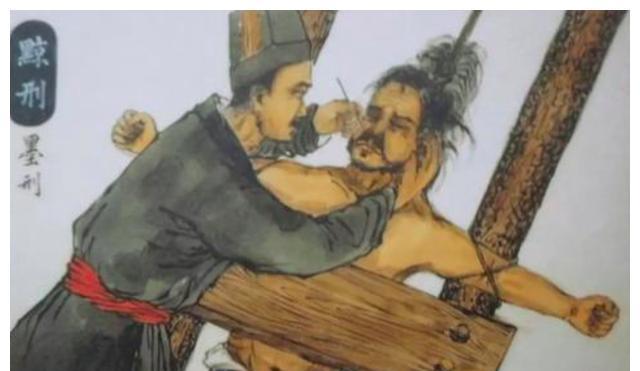There are many traditional habits in the countryside, and "no tattoos" is one of them, especially the elderly are most disgusted by it. If the young man secretly got a tattoo, he would inevitably be preached by the elders and even beaten. Not only that, the neighbors will hide far from coming, there is no specific reason, simply think that "there are no good people with tattoos".
Speaking of tattoos, it should actually be called "tattoos", at least as far back as 3000 years ago, in fact, it is to use ink needles pierced into the skin to create some patterns or words, because at that time there was only black, and the color would turn blue and blue over time, also known as "tattoos". In ancient times, tattoos were often related to punishment, and in the Zhou Dynasty, there was a face punishment, also known as "ink punishment". The method of doing this is to tattoo the face or other parts of the body, and then color it to become a permanent mark, so obvious that it is clear at a glance that the person has committed a crime.

In the early days of the Zhou Dynasty, the criminal law stipulated that there were "five hundred ink crimes", that is, there were 500 crimes in ink punishment. In the "Shang Shu Lü Punishment", it is also recorded that "the ink punishment belongs to a thousand". The initial ink punishment was very painful, and the Li ji Wen Wang Shizi records that "all the people were stabbed with knives and saws". The way it is carved with a knife, not only on the surface of the skin, but even touching the bones, and then applying ink. For those who commit the crime, not only will they suffer physical harm, but also form a mark of shame.
Those who are eaten without human rights will be looked down upon, and slave owners in the Zhou Dynasty like to use those who are diced as gatekeepers. During the Spring and Autumn Warring States period, it was even more necessary to serve hard labor, such as "黥為城丹", and after being tuoshe, he had to repair the city wall, which was also a relatively fixed punishment measure. During the Han Dynasty, the face was abolished, and the men shaved their heads, brought torture instruments, and then did four years of "Chengdan" hard labor, and women did four years of hard labor of scooping rice. However, after the late Jin Dynasty, it gradually became popular, and it became more severe, if the slave fled, after being caught, it would be diced, more and more seriously, first above the two eyes, then the two cheeks, and finally the two eyes below.
In the Northern Song Dynasty, the criminal law of the face was changed to a needle, also known as "sting", for the crime of different punishments, the marks made are different, the theft is stabbed behind the ear, the crime of infidelity and the crime of flow is stabbed in the face, and the perpetrator of serious crimes not only has to be tattooed but also issued with an army. It can be seen from "Water Margin" that many of the characters in it are criminals who have been faced by Qiong. Later, in the Yuan, Ming, and Qing dynasties, the punishment for appeasement was basically the same, and in the late Qing Dynasty, the appeasement punishment was basically abolished.
For the face of the creed is also used by soldiers, but those who recruit into the army, after passing the test, they will tattoo on the face, to prevent desertion is also easy to manage, and more soldiers use the face to show determination. At the end of the Tang Dynasty, Zhu Jin was known as the "Wild Goose Capital", and Zhu Wen formed the "Falling Goose Capital" tit-for-tat. The most famous story belongs to the "mother-in-law's thorn character", in fact, this originated from the Southern Song Dynasty's "Eight Character Army", when the soldiers at that time, in order to show their determination to resist Jin, carved on their faces "Red heart to serve the country, swear to kill the golden thief" eight sons.
In the past, "tattooing" was basically equivalent to a crime, and it has been seriously negative for people. Although it has now disappeared, the habits of thousands of years have not changed, and it is considered a bad symbol. Especially in modern times, tattoos are often common in some underworld gangs, which deepens people's dislike of tattoos, and there is a saying that "tattoos are not good people".